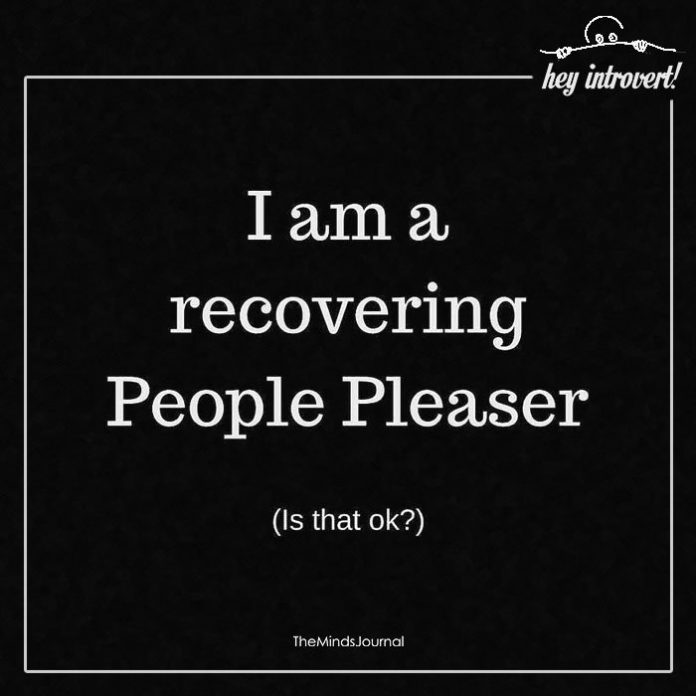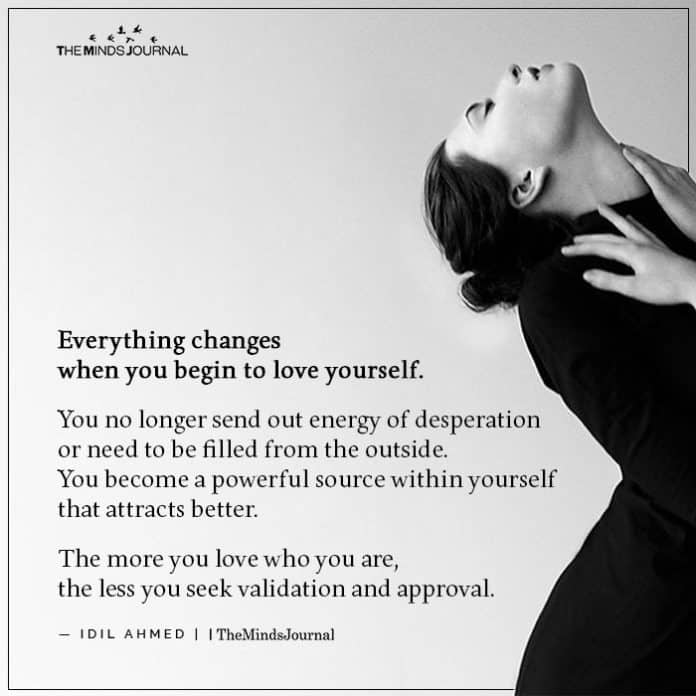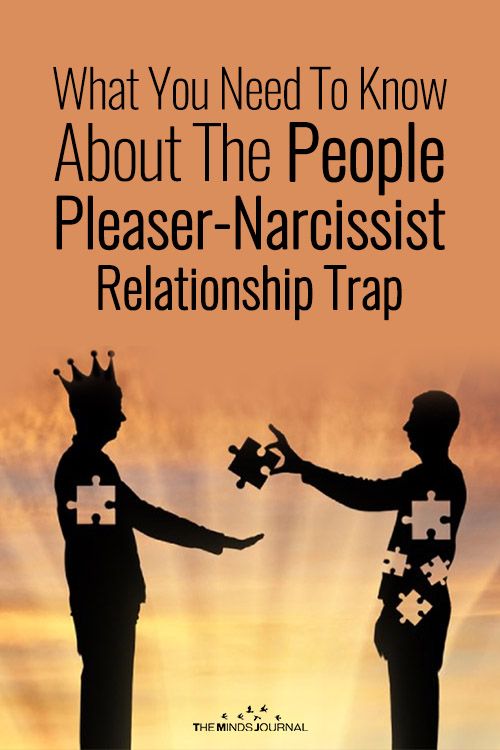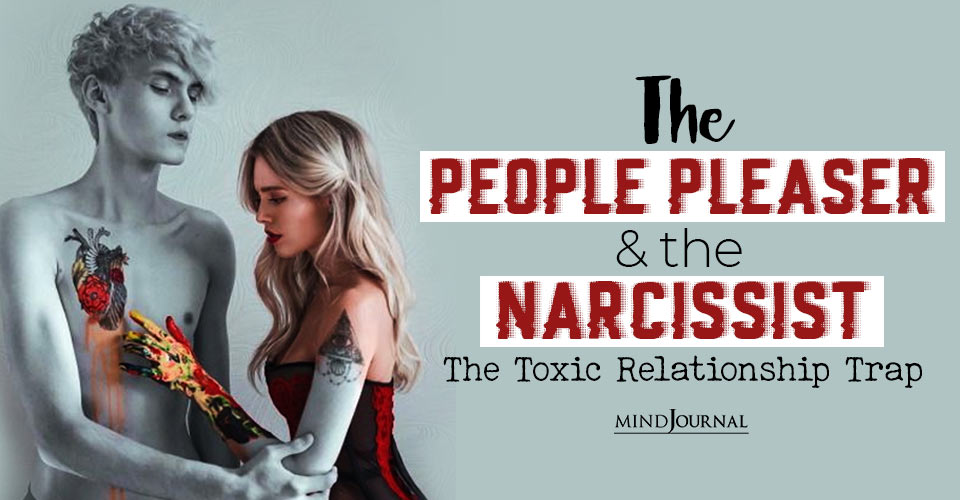Are you a people pleaser trapped in a relationship with a narcissist? A relationship between the people pleaser and the narcissist is a toxic one, to say the least. This is a frustrating toxic pattern that you need to break out of to live a healthy, happy, and satisfying life.
Who is a people pleaser?
People pleaser refers to individuals who want everyone to like them. They have difficulty saying no to others. Hence they end up saying yes to everyone and everything.
They find it frustrating that someone does not like them as they always seek external validation from others. They believe that pleasing others is the only and best path to acceptance.
They have poor boundary-setting skills and often end up doing things that they might not personally like. They are willing to do anything and everything to make everyone around them happy and keep them pleased.
As a result, they often hide their genuine selves and portray a personality that is more likable.
National best-selling author Vanessa Van Edwards writes “A people pleaser is someone who tries hard to make others happy. They will often go out of their way to please someone, even if it means taking their own valuable time or resources away from them.” She adds “People pleasers often act the way they do because of their insecurities and lack of self-esteem.”
Related: 9 Signs You’re A People Pleaser
Is being a people pleaser wrong?
Trying to please others might not look like the worst thing to do. There is nothing wrong with being kind and nice to make others happy.
But when you ignore your own self and avoid your needs and happiness just to please others, then it can be detrimental to your own mental and emotional well-being.
Author Darlene Lancer, JD, LMFT explains “A people pleaser isn’t just being big-hearted or kind to others. Nor are people-pleasers compromising.” They don’t have the option to choose. “Their behavior has become a lifestyle. It’s compulsive because they’re unable to say no,” she adds.

When you try to make others feel better or control their reactions by altering your behaviors, words, and even persona, then it can become a damaging, unhealthy habit. By bending over backward to do things that others may like, you go out of your way to be more acceptable and likable.
You invest your time, effort, and energy into pleasing others as you lack self-confidence, have low self-esteem and are riddled with insecurities.
Therapist Erika Myers says “The urge to please others can be damaging to ourselves and, potentially, to our relationships when we allow other people’s wants to have more importance than our own needs.”<
In their efforts to avoid outer conflict, people pleasers end up creating monumental inner conflict. And this can seriously affect their careers, relationships, and personal lives.
“The anger, resentment, hurt, and conflict we always tried to avoid continue to grow. Being alone might appear to be a welcome escape from these challenges, but then we’d end up sacrificing our connection to others, which is what we truly want,” explains Darlene Lancer.
Related: 9 Important Reminders For A People Pleaser and How To Finally Say ‘No’
Signs of a people pleaser
People pleasing can be a damaging habit and a serious problem. If you are wondering whether you are a people pleaser or not, then here are a few signs to watch out for according to psychotherapist and author Amy Morin, LCSW
- You pretend to agree with others even though you may disagree internally
- You feel personally responsible for how people around you may feel
- You apologize to others more than you should and unnecessarily blame yourself
- You are always doing what others want you to do and feel burdened by it
- You find it difficult to say no to others, so you either say yes or lie to avoid it
- You can compromise your values to please others as you don’t want to displease anyone
- You pretend to be someone you are not and engage in self-destructive behavior to make others like you
- Getting external validation is crucial for you as you highly value what others think of you
- You avoid conflict at all costs and easily sacrifice and compromise your stand
- You never let others know about your real feelings or emotional pain, damaging your relationships
The people pleaser and the narcissist
The lack of self-esteem and low sense of self-worth is perhaps why most people pleasers end up in a relationship with narcissists. It’s like a match made in heaven.
They are two ends of the same spectrum – the people pleaser is the benevolent element while the narcissist is the malevolent element. They often feed off one another and are usually unable to thrive without the other.

Narcissists love preying on people who will give them praise and validation. While people who love pleasing others love giving what the narcissist seeks the most – attention. Their lack of self-confidence and self-esteem compels them to focus on the narcissist by avoiding their own selves.
Clinical psychologist and author Leon F. Seltzer, Ph.D. writes “People-pleasers, so dependent on being approved and accepted by others, are incapable of validating themselves independent of others’ confirmation.”
Related: How Your Emotional Thinking Excuses The Narcissist’s Toxicity
The narcissistic relationship trap
One of the main reasons why narcissists and people pleasers attract each other so much is because they fulfill each other’s unhealthy, toxic needs.
The narcissist is only concerned about their own needs and desires while the pleaser is obsessed with making others happy by avoiding their own needs. This is why narcissist is so strongly attracted to people who love pleasing others.
“Narcissists think of themselves first and very little of others; people-pleasers think of others and very little of themselves,” says author and mental health advocate Christine Hammond, MS, LMHC.
A people pleaser will often look at their narcissistic partner through distorted rose-colored glasses. They will avoid all their negative traits and validate their behavior just to gain acceptance. “Narcissism demands to be fed and people pleasers are the best source,” adds Christine.
When their narcissistic partner becomes abusive, they take the blame and easily apologize to avoid confrontation. This is perhaps the most perfect toxic relationship as the narcissist constantly spreads their toxicity and the people pleaser continually tries to ‘fix’ their narcissistic partner.
The main problem is that people pleasers fail to realize they deserve to be loved unconditionally and accepted just as they are in relationships. They need to realize that it is okay to be flawed, to be imperfect, to make mistakes, and still feel content.
They must realize that their emotions have value too and it’s not their job to fix others or make them happy.
How to get out of the trap
If you are a people pleaser and want to get out of this unhealthy relationship trap then you need to start by putting yourself first. It is only by taking care of yourself, you will find the mental and emotional energy to help others. Self-love and self-care can give you the strength to turn your life around.
Therapist Erika Myers says “It’s OK to be a giving, caring person. It’s also important, however, to honor and tend to our own needs.” It won’t make you selfish. It will only make you realize your own worth.

The next thing you need to do is start setting up healthy personal boundaries if you wish to overcome people-pleasing behaviors.
Healthy boundaries will empower you to protect your personal needs and desires and nurture your emotional and mental space.
Moreover, you also need to learn how to identify signs of narcissism in your partner and see them for who they are. If they fail to respect your boundaries, then you need to consider walking away from the relationship to protect yourself and build your self-esteem.
Related: Being a People-Pleaser: Why It’s Dangerous and How to Stop
Liberating yourself from the toxicity of your people-pleasing habits and narcissistic relationship will empower you to find happiness within and live a satisfying, meaningful life.













Leave a Reply